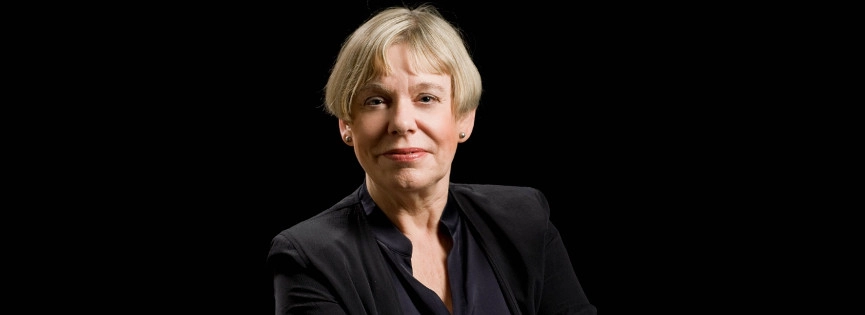Main content
Karen Armstrong 2017 Princess of Asturias Award for Social Sciences

Karen Armstrong (Wildmoor, UK, 14th November 1944) entered the Catholic Convent of the Sisters of the Holy Child Jesus in 1962 and, as a novice, began her studies at St Anne’s College, Oxford. She left the order in 1969, subsequently earning a degree in Contemporary Literature.
From 1973 to 1976, she lectured and carried out research at Bedford College, University of London, and from 1976 to 1981 taught English and was head of department at James Allen Girls’ School (Dulwich, South London). She published her first book in 1982 and a year later wrote and presented a documentary series on the life of St Paul for Channel 4 television, followed by three more.
Since 1984, she has devoted herself mainly to writing about religion. She has taught Christianity at Leo Baeck College, a rabbinical college in London. Since 2005, she has been a member of the High Level Group of The Alliance of Civilizations, a UN initiative.
Karen Armstrong is considered a leading international scholar in the comparative study of Islam, Judaism and Christianity. Her first book was Through the Narrow Gate (1982), a memoir she continued in The Spiral Staircase (2004). The former was published in the Daily Express, at the same time as Armstrong began to appear on television programmes, one of which was Opinions on Channel Four, taking a polemic stand against the Catholic Church. In 1983, following the experience of her trip to Jerusalem to make the documentary about St Paul, she devoted herself completely to researching and studying religions, especially monotheistic religions. Her books A History of God: The 4,000-Year Quest of Judaism, Christianity and Islam (1993) and The Battle for God: Fundamentalism in Judaism, Christianity and Islam (2000) became bestsellers. She has also authored 20 other titles on faith, the major religions, the common elements among them, and the role they play in the modern world. Also worth highlighting among her works, which have been translated to numerous languages, are Holy War: The Crusades and Their Impact on Today’s World (1988), Jerusalem: One City, Three Faiths (1996), The Great Transformation: The Beginning of our Religious Traditions (2006) and The Bible: A Biography (2007).
Her studies and books on Islam –Muhammad: A Biography of the Prophet (1991) was the first– made her known as a thinker and researcher among the Muslim community of the United Kingdom and the United States, where, in addition to being invited to talk about Islam in Congress, some of her books have figured on The New York Times bestseller list. In her works, Armstrong has found compassion to be the common element to all religions, understood as empathy for and interest in one’s neighbour. In order to recover compassion as the core of ethics and religion, in 2009 she launched the Charter for Compassion movement, which became an international organization to promote joint efforts for peace. She also gives talks around the world and writes articles in various publications such as The Guardian.
Officer of the Order of the British Empire (OBE), among other honours Armstrong has received the TED Award (USA, 2008), the Building Bridges Award from the Association of Muslim Social Scientists (UK, 2004) and The Freedom of Worship Award from the Roosevelt Foundation and the Roosevelt Institute (USA, 2008).
End of main content
